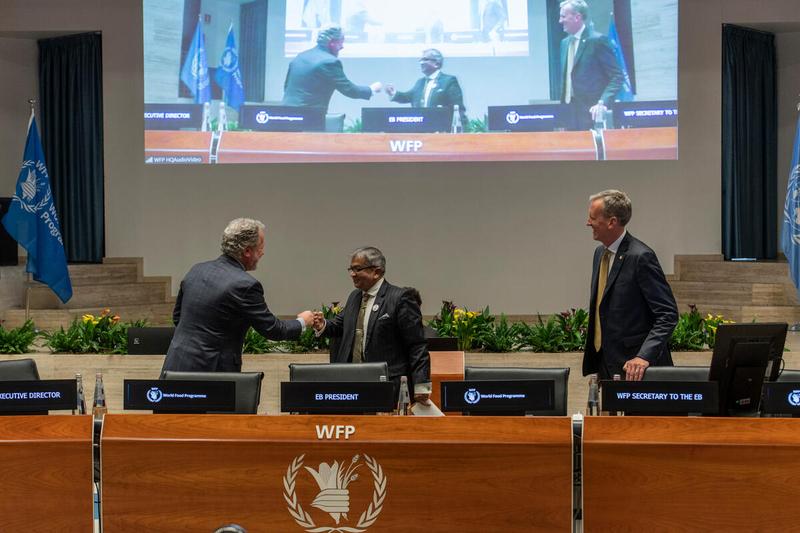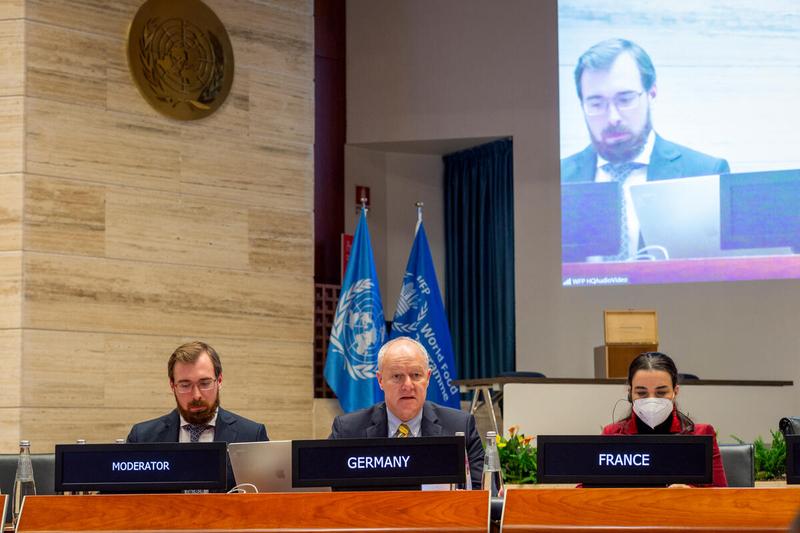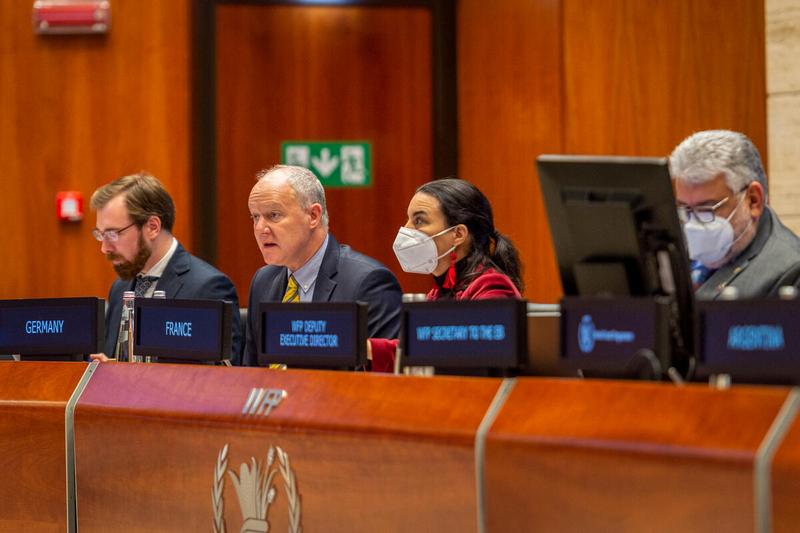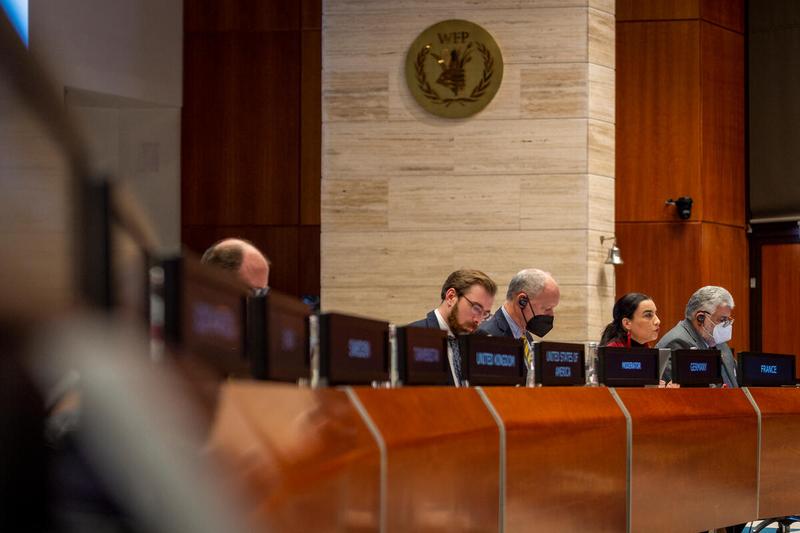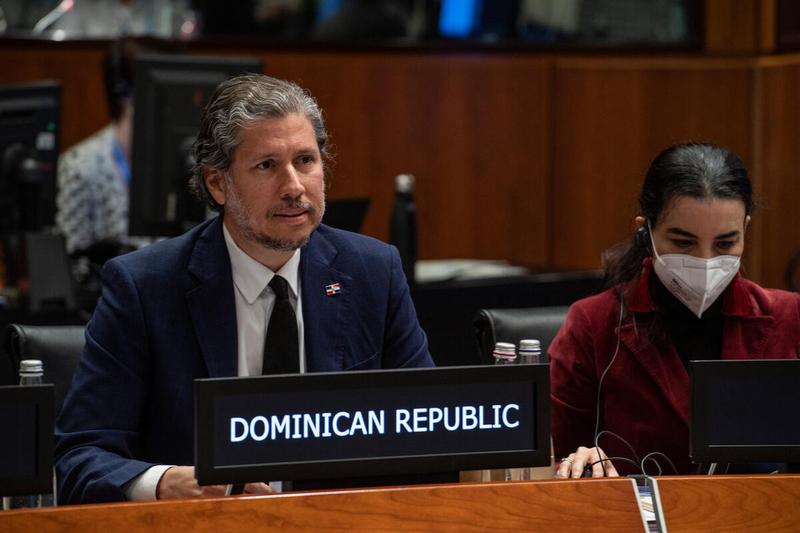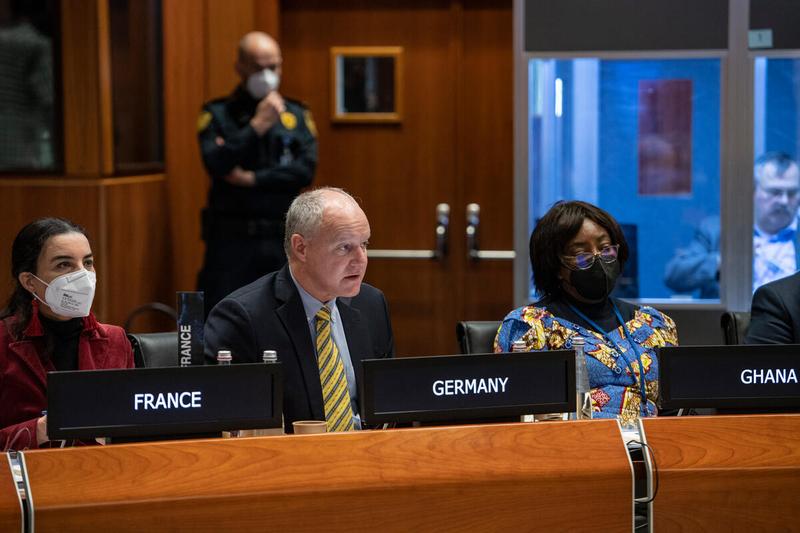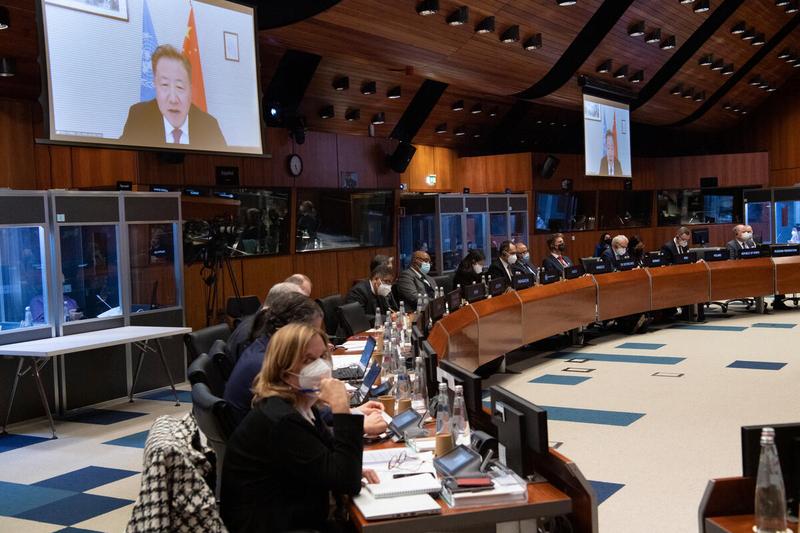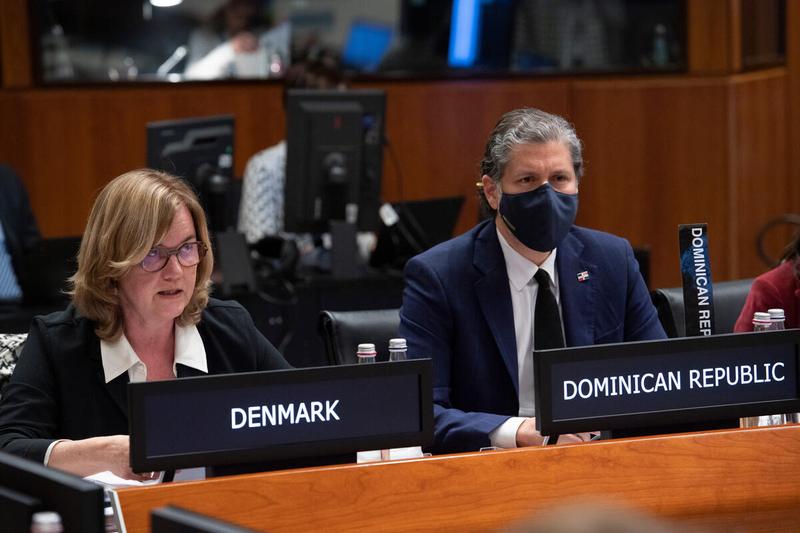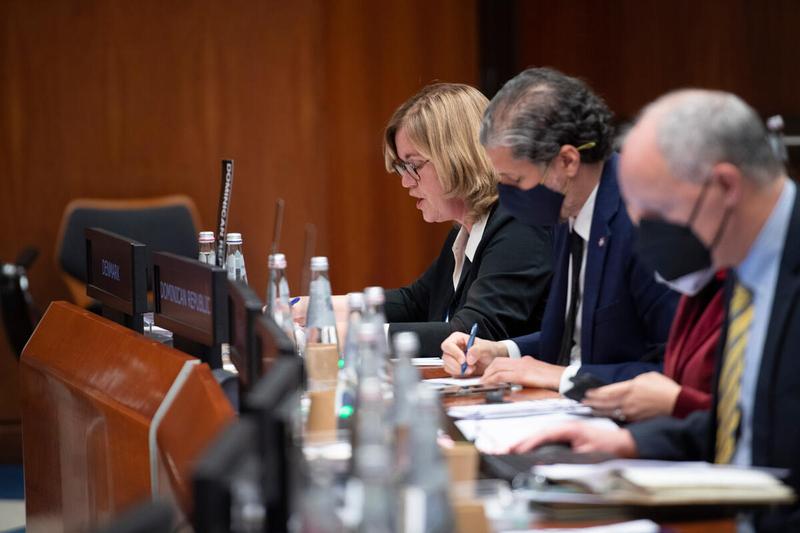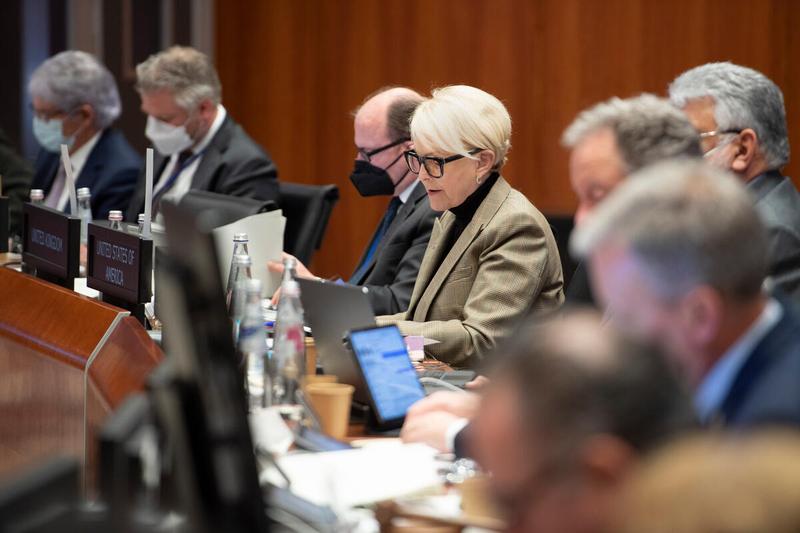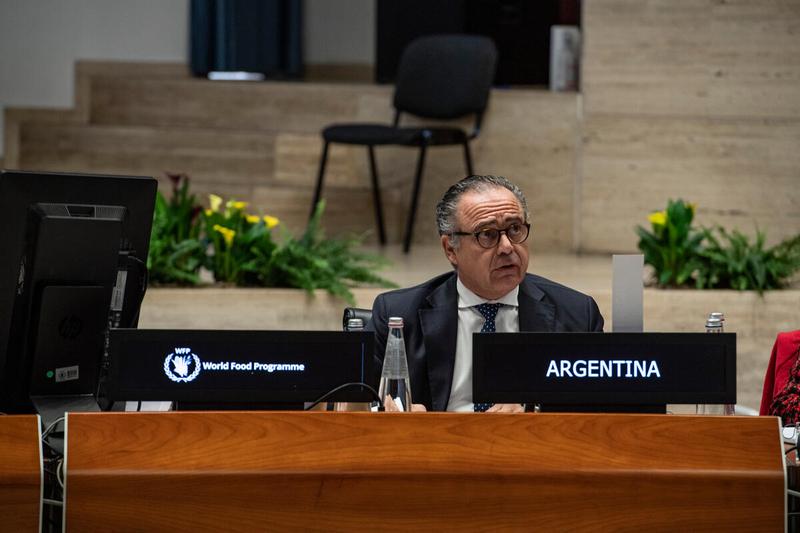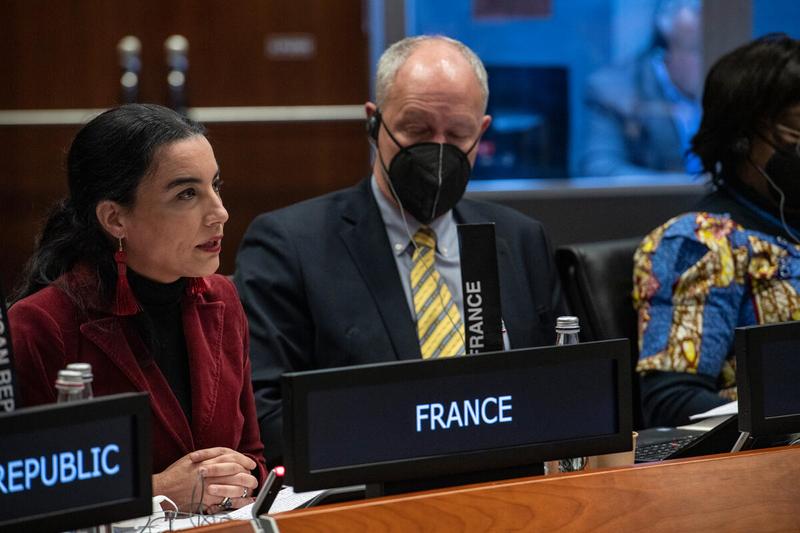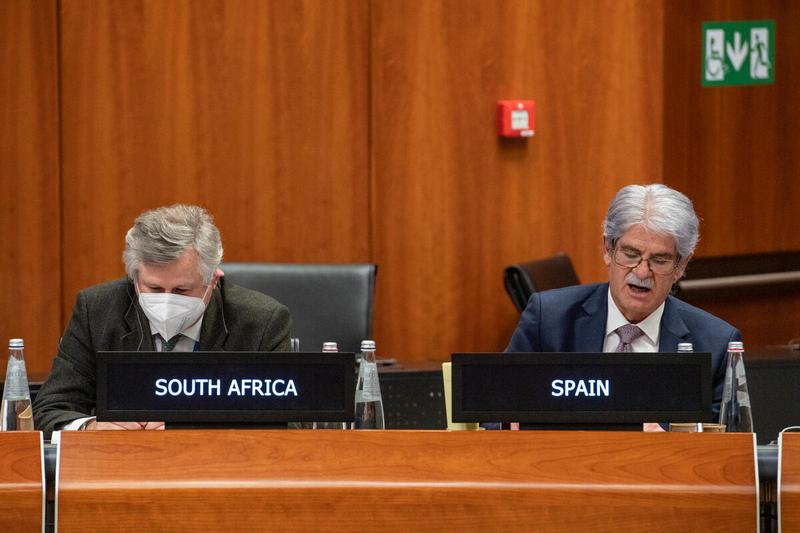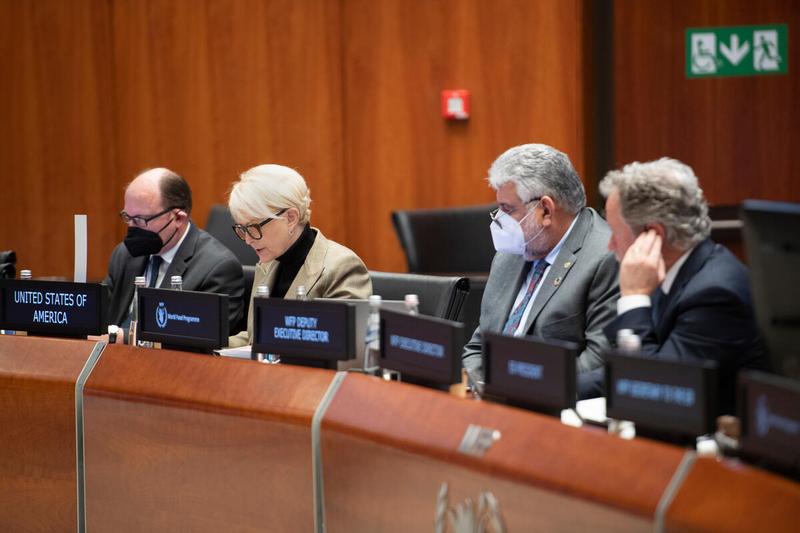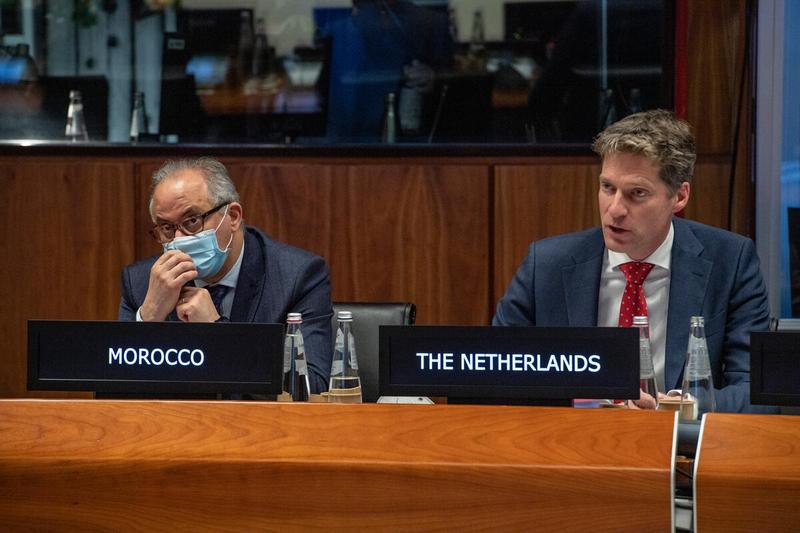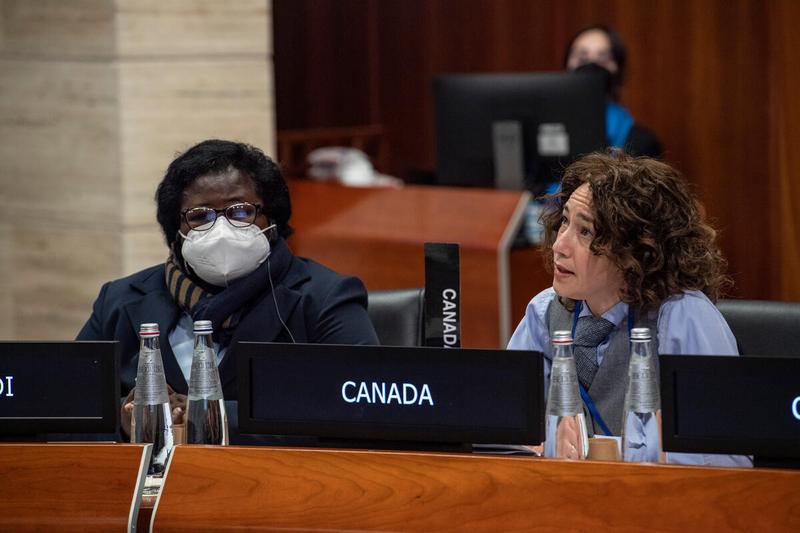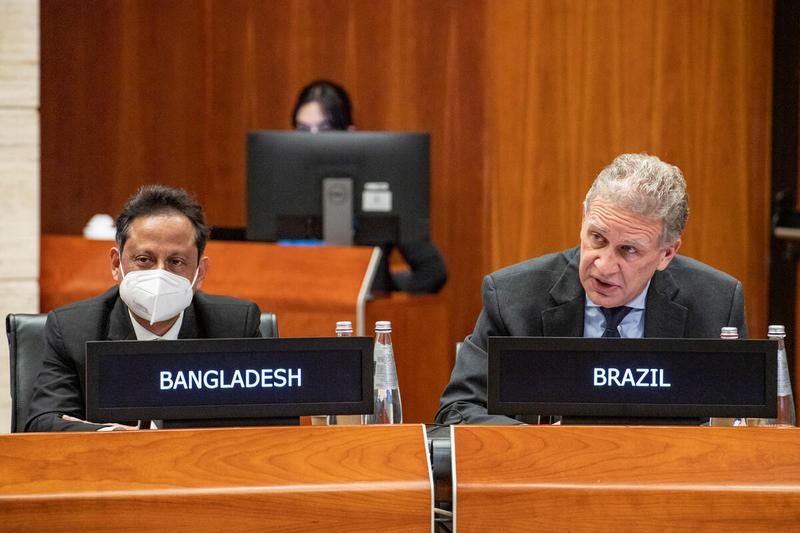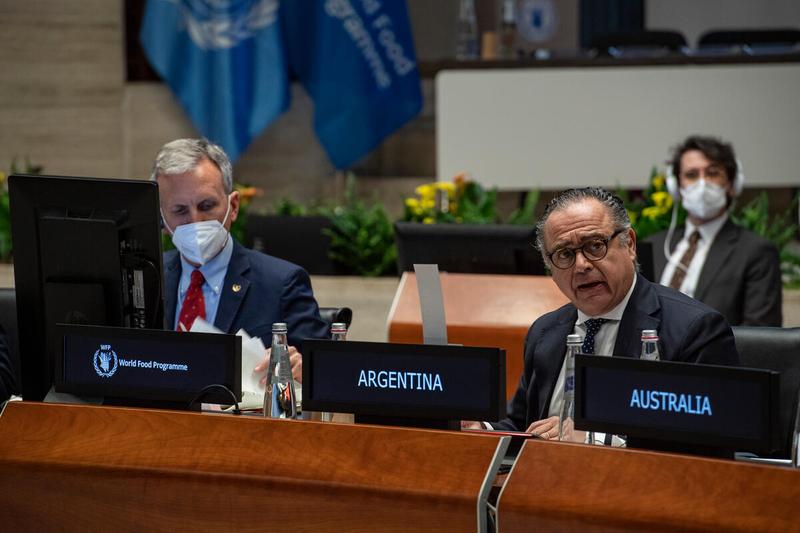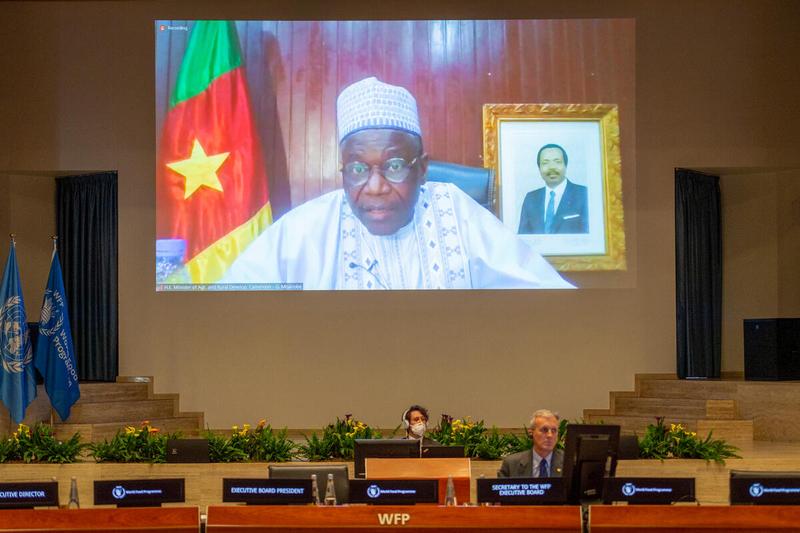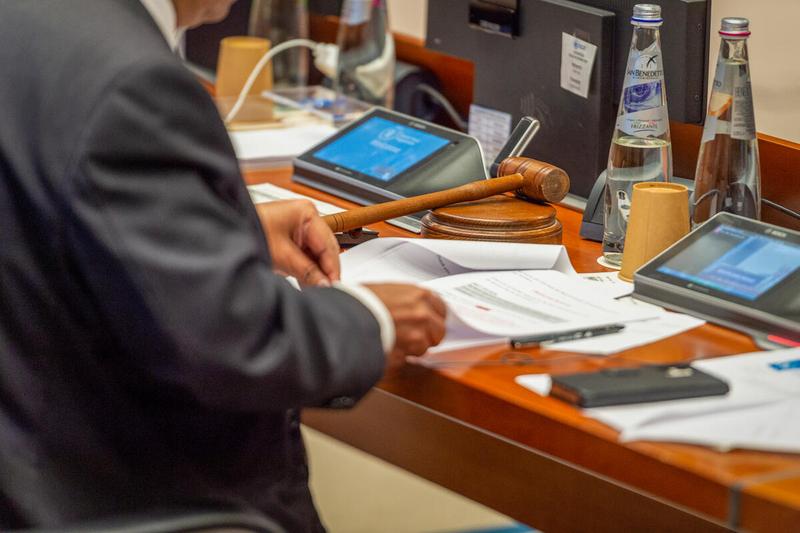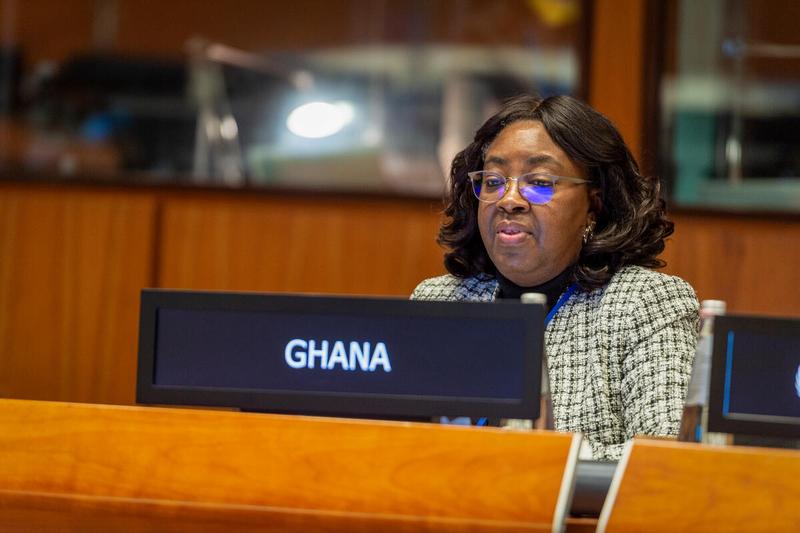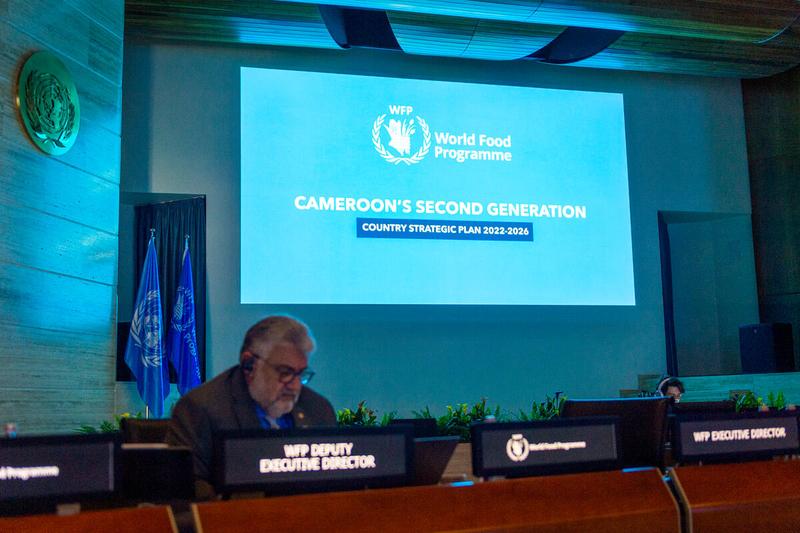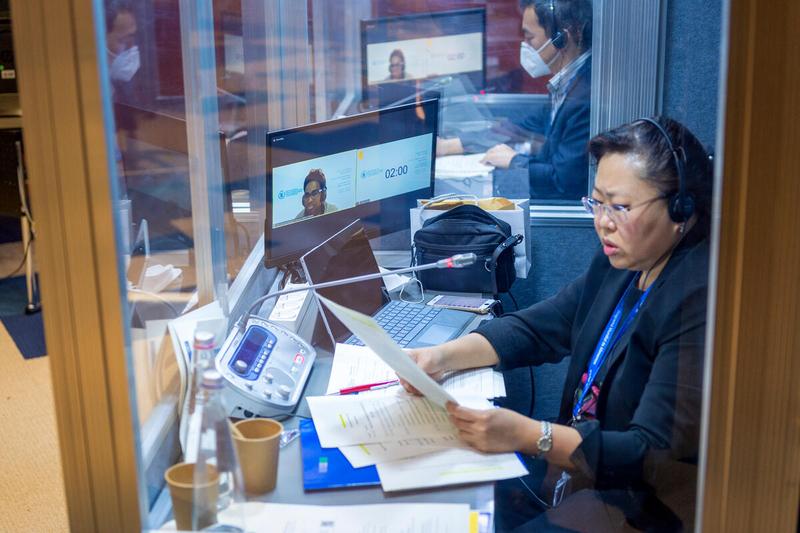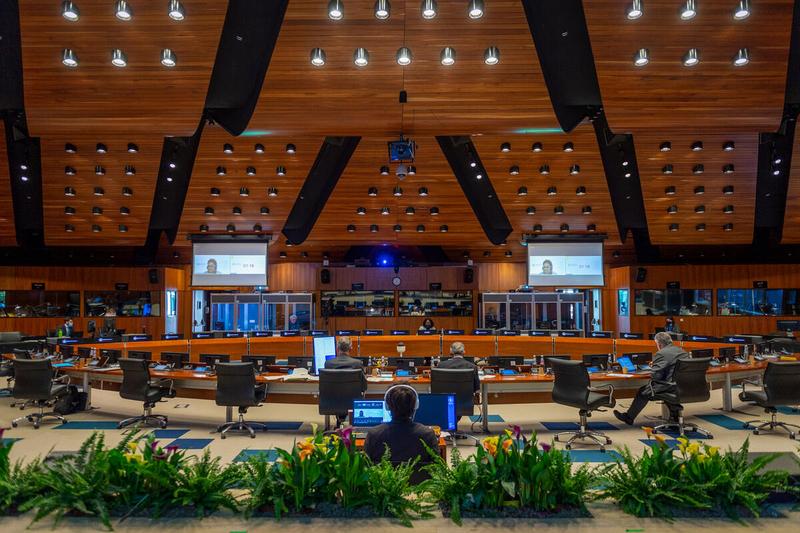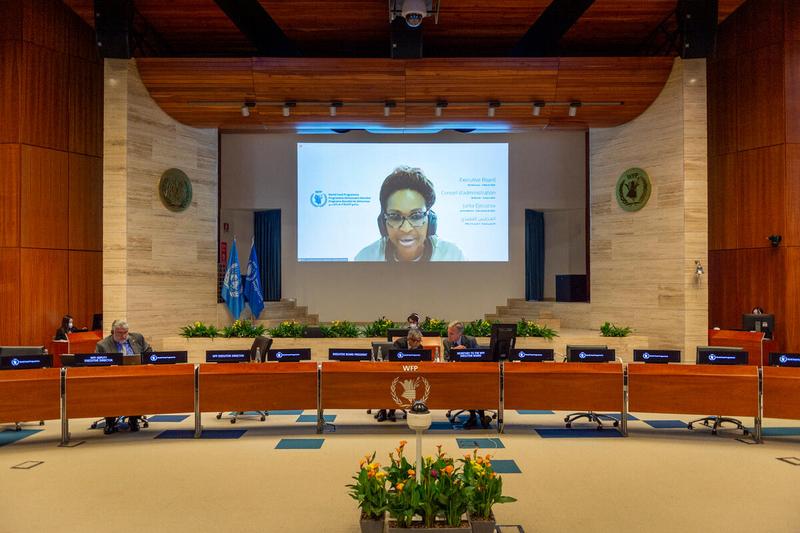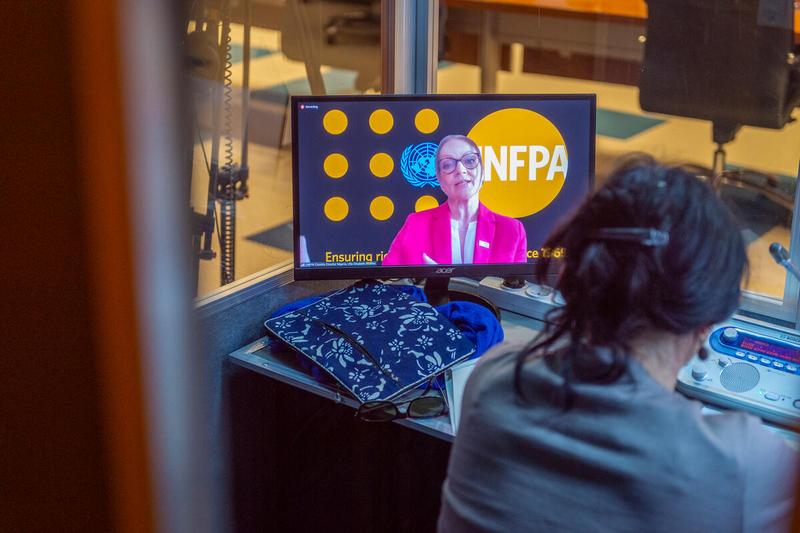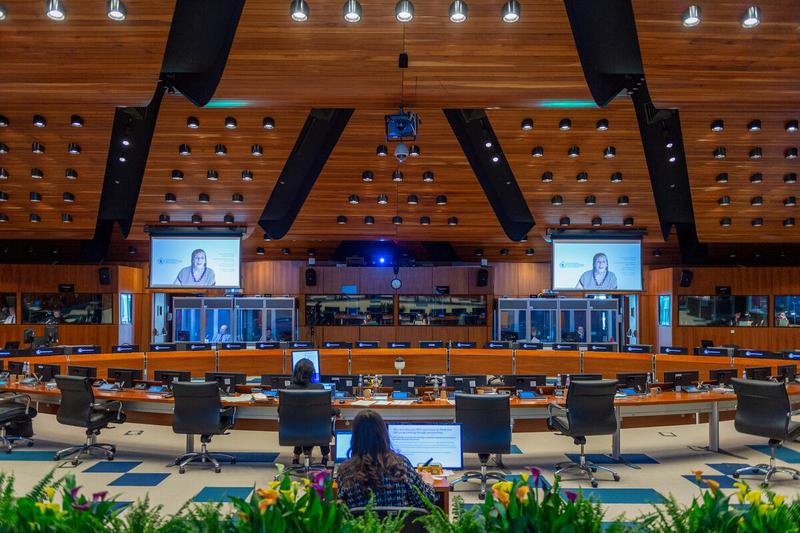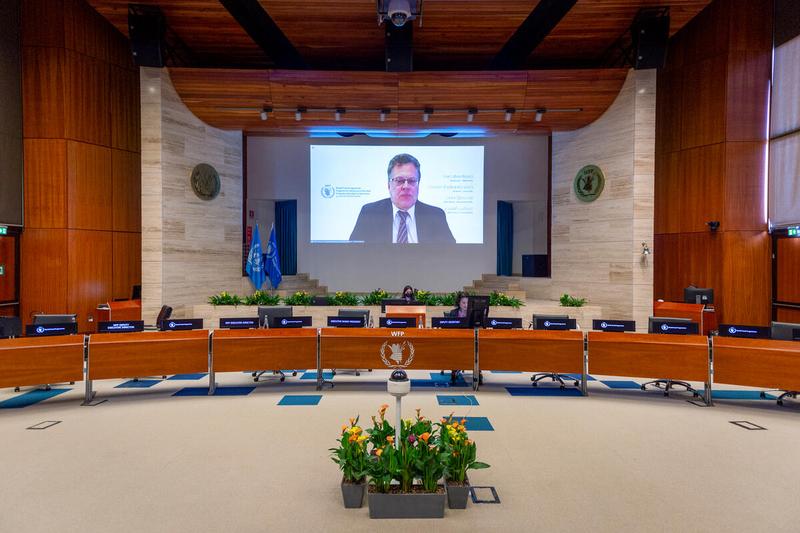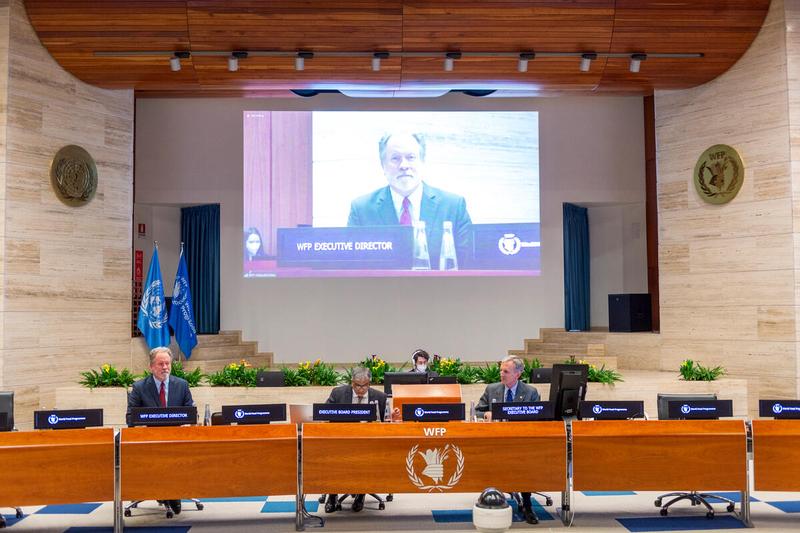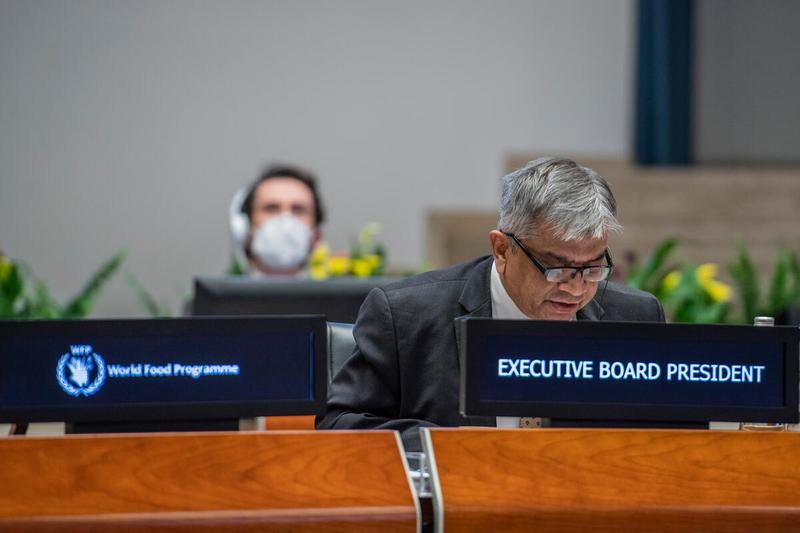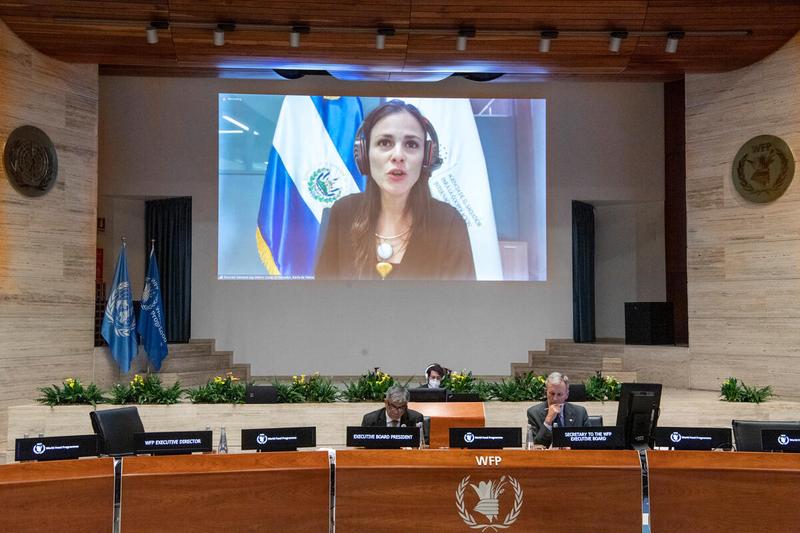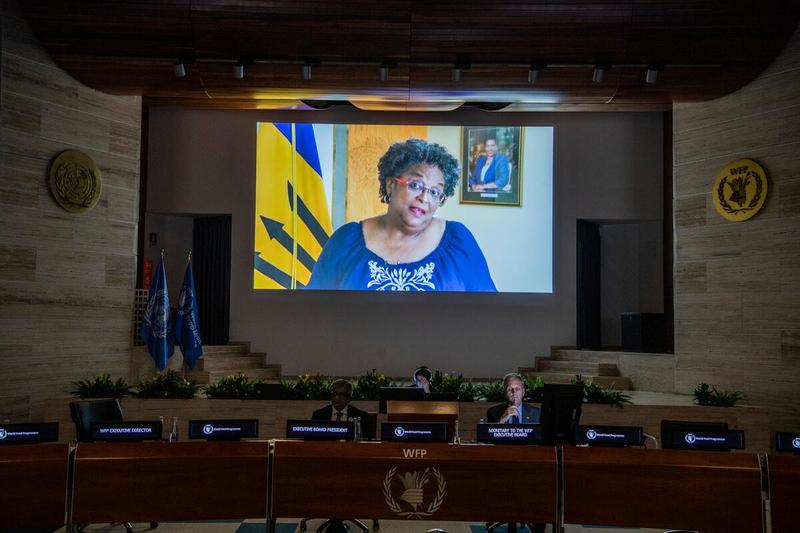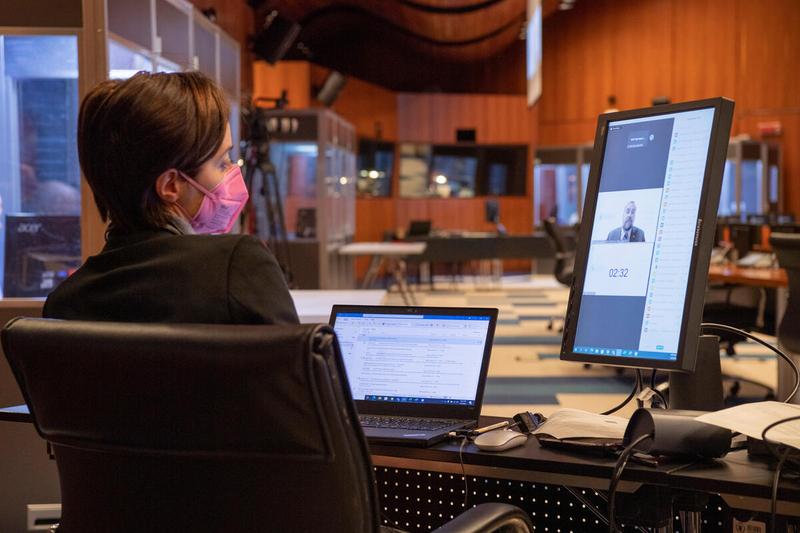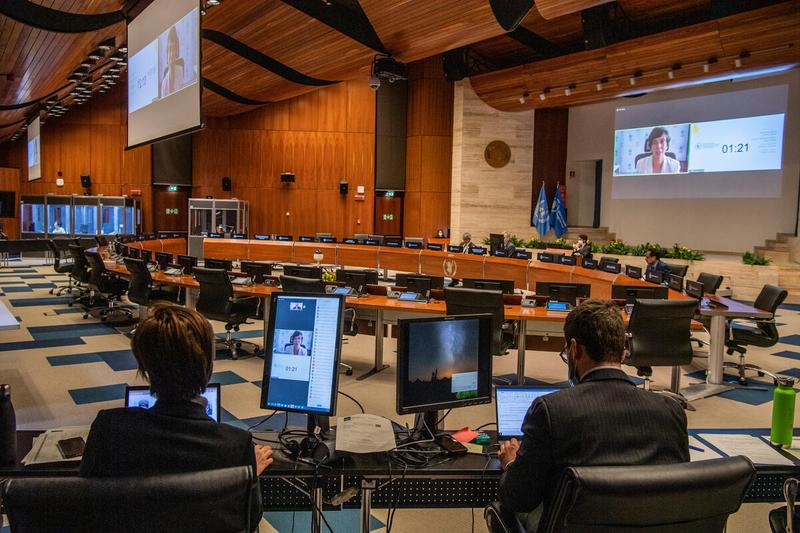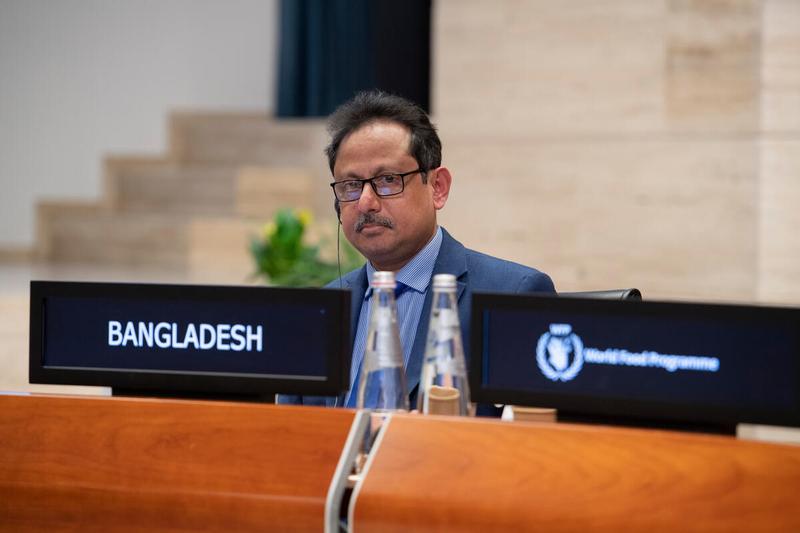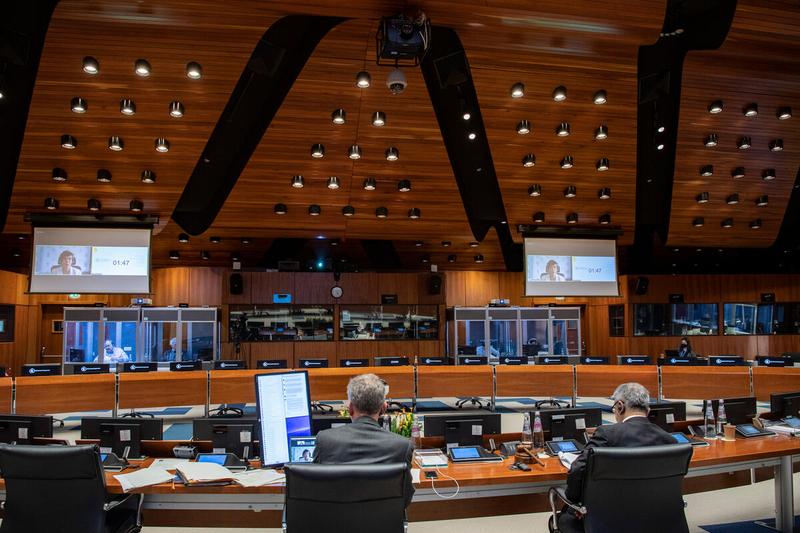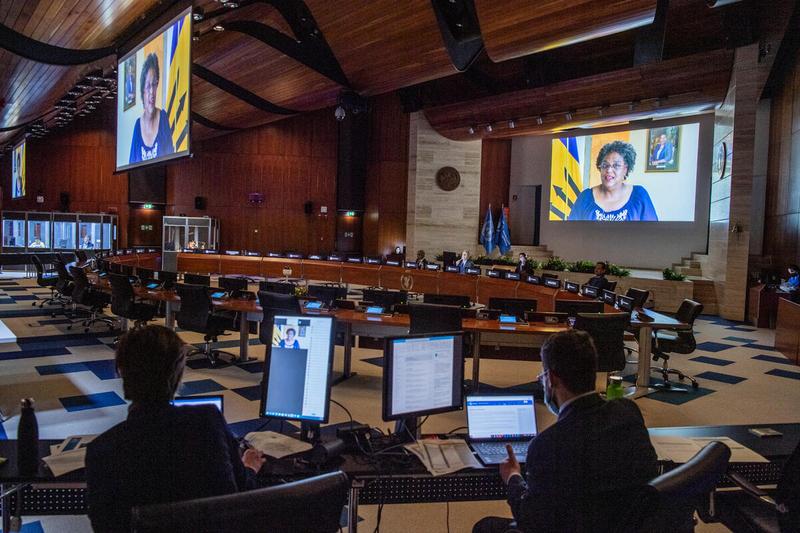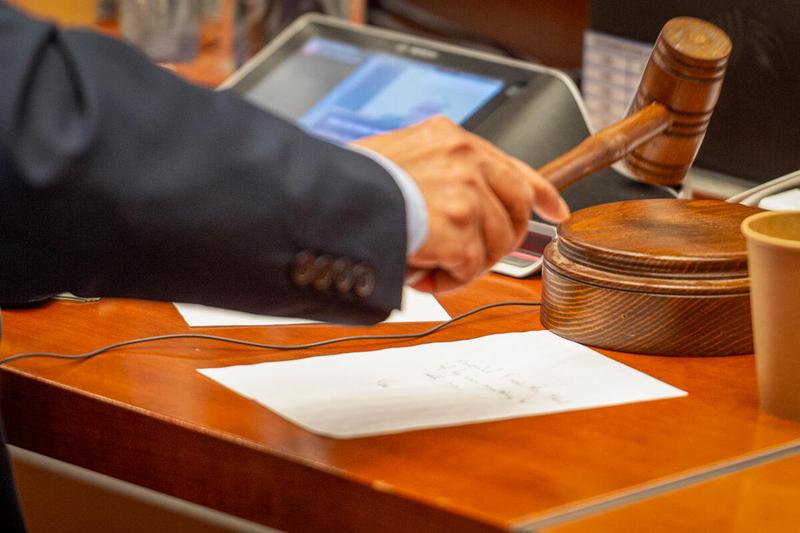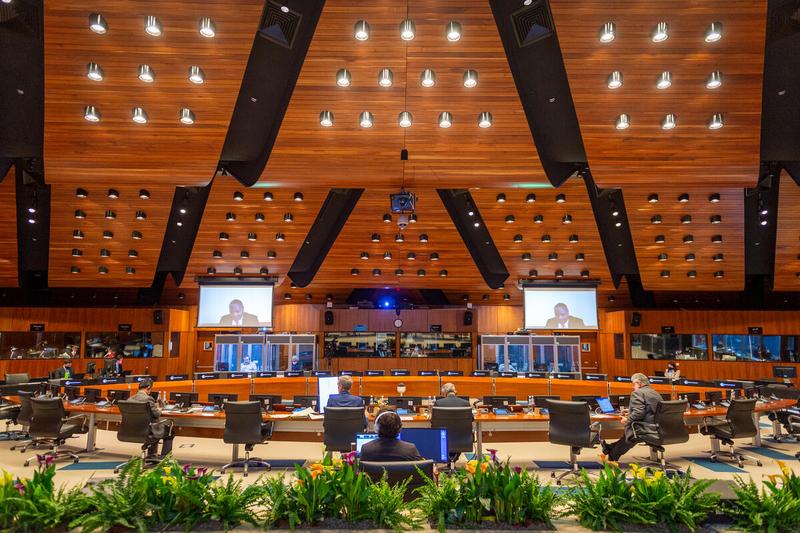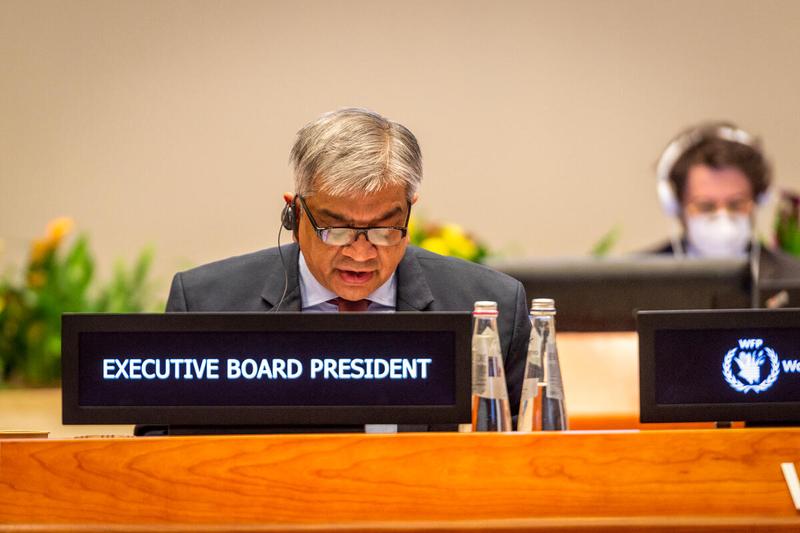From 28 February to 3 March the World Food Programme held the 2022 First Regular Session of the Executive Board with a one-day extension from the original schedule.
In accordance with current COVID-19 restrictions in Italy, this session was conducted virtually with minimal in-person participation. Exceptionally, due to a lack of consensus the 36 representatives of the Board convened for an in-person vote on the election of the new Vice-President.
Election of the Bureau
The Executive Board elected the new Bureau for 2022. His Excellency Shameem Ahsan, Ambassador and Permanent Representative of Bangladesh, was nominated as President of the Executive Board and H.E. Artur Andrzej Pollok, Ambassador and Permanent Representative of Poland, as Vice-President. Click here to see the full composition of the EB Bureau.
In taking up the role, H.E. Ahsan conveyed that he was deeply honoured to serve WFP and its Membership in the capacity of President and hopes to support WFP efforts in delivering on its dual mandate and in providing lifesaving assistance in humanitarian crises, especially in conflict-affected countries and under the current COVID-19 pandemic.
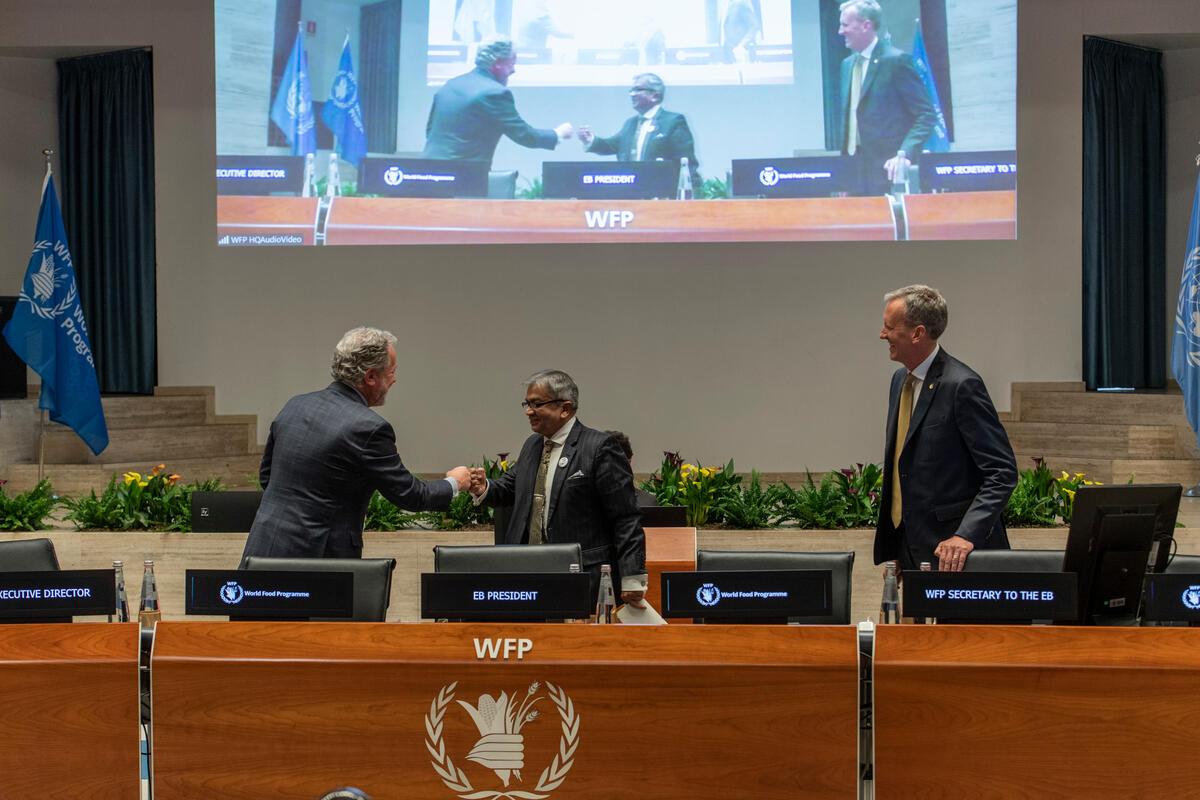
Investiture of the Executive Board President 2022, H.E. Shameem Ahsan Ambassador and Permanent Representative of the People's Republic of Bangladesh. Photo: WFP/Rein Skullerud
Opening remarks by the Executive Director
The Executive Director, David Beasley, opened by highlighting the unprecedented levels of uncertainty that the world is facing this year, mentioning among others the ongoing crises in Afghanistan and Ukraine. Beasley announced that WFP is stepping up its response within and outside Ukraine, in bordering countries, working in cooperation with different partners to reach people affected by the conflict. The ED also remarked that WFP has experience working in this country as it had assisted more than one million people a few years ago.
The WFP Executive Director was deeply concerned about the impact this conflict will have on global supply chains and on WFP operations as it will result in higher food prices in addition to the increases COVID has already caused on shipping and commodity cost. Indeed, the Ukraine/Russia area represents 30 percent of the global wheat trade and 50 percent of WFP’s wheat comes from the Ukraine.
The ED subsequently provided a picture of the overall global needs for humanitarian assistance where the number of food insecure people has risen to 276 million people and 44 million people in 38 countries are at IPC level 4, which means they are “knocking on famine’s door”. This, as Beasley explained, is happening while WFP is facing funding gaps in many operations including Yemen, Afghanistan, South Sudan, Ethiopia, Syria, Chad and Niger.
The ED also appealed to the Membership to provide WFP with the funding flexibility not only to support general food distribution but also for sustainability, resilience and cash assistance programmes as these would inject liquidity into local economies to boost growth and bolster women’s empowerment.
Beasley went on to emphasize the importance WFP places on digitalization to ensure that the intended beneficiaries receive the correct amount of cash, vouchers or commodities.
The Executive Director concluded his speech by stressing the progress that WFP has made towards achieving gender parity in its workforce with the percentage of women increasing from 34 to 42 percent in the past four years.
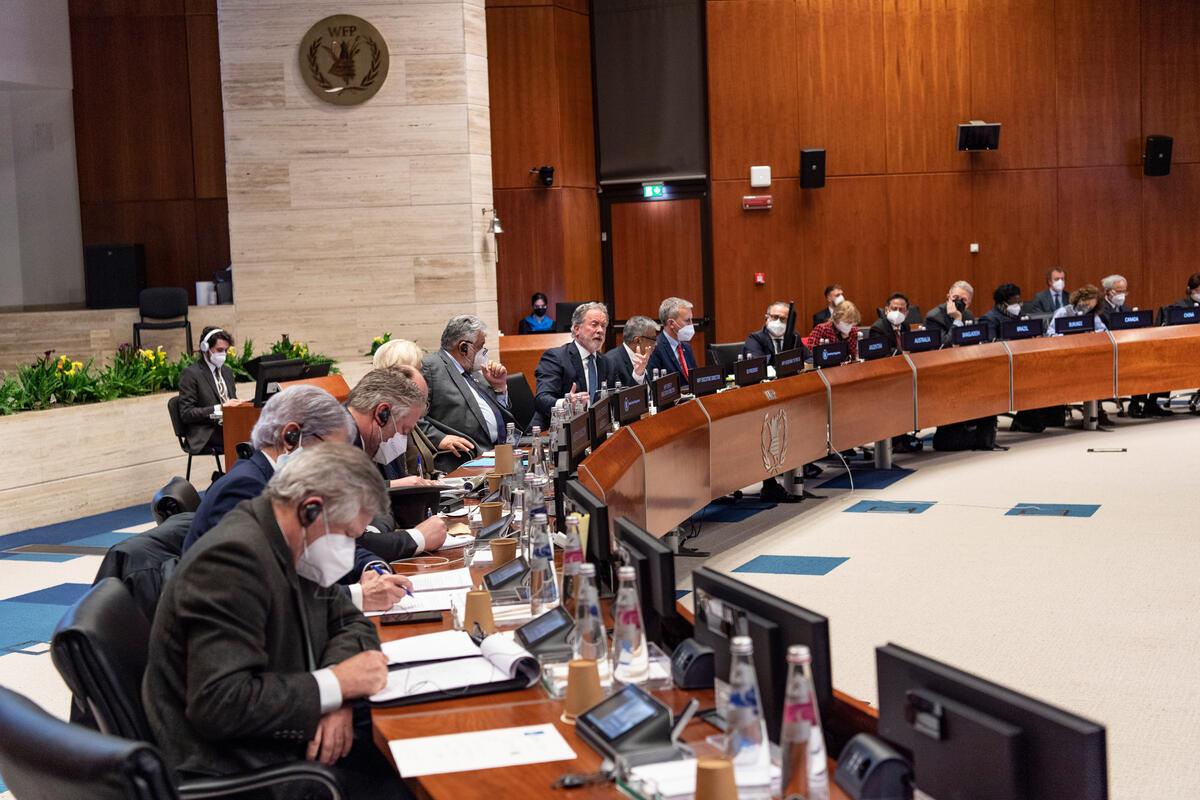
Opening speech by the Executive Director. Photo: WFP/Rein Skullerud
High-level event Africa Day of School Feeding
Originally scheduled to take place on 1 March on the occasion of the Africa Day of School Feeding, the high-level segment on “African Union commitment to the School Meals Coalition: turning political commitment into concrete action” was held on Wednesday, 2 March.
The Executive Director, David Beasley, opened the event followed by a keynote address from Her Excellency Angeline Ndayishimiye, First Lady of Burundi.
H.E. Ndayishimiye remarked that the celebration on 1 March is about the success of school feeding programmes on the African continent and how these benefit young people, human capital and local economies, representing an investment in the future of Africa.
Despite some progress over the last decade, the path towards food security for children is still long and hence the First Lady of Burundi urged those African Union countries and partners who have not yet done so to sign up to the global coalition for school feeding.
Her Excellency explained that nutrition and food security for children as well as their education are national priorities for the Government of Burundi. In fact, through the school feeding programme, in cooperation with WFP, Burundi has provided locally produced and purchased school meals to about 670,000 children in over 849 schools and, as such, increased the school attendance rate from 5 to 14 percent.
After H.E. Ndayishimiye’s speech, Ms Valerie Guarnieri, WFP Assistant Executive Director moderated a round table with high-level participants such as Dr Ibrahim Assane Mayaki, Chief Executive Officer of African Union Development Agency (NEPAD), Ms Stefania Giannini, UNESCO Assistant Director-General for Education, Mr Máximo Torero Cullen, Chief Economist at FAO and Mr Andrew Morley, World Vision’s Chief Executive Officer.
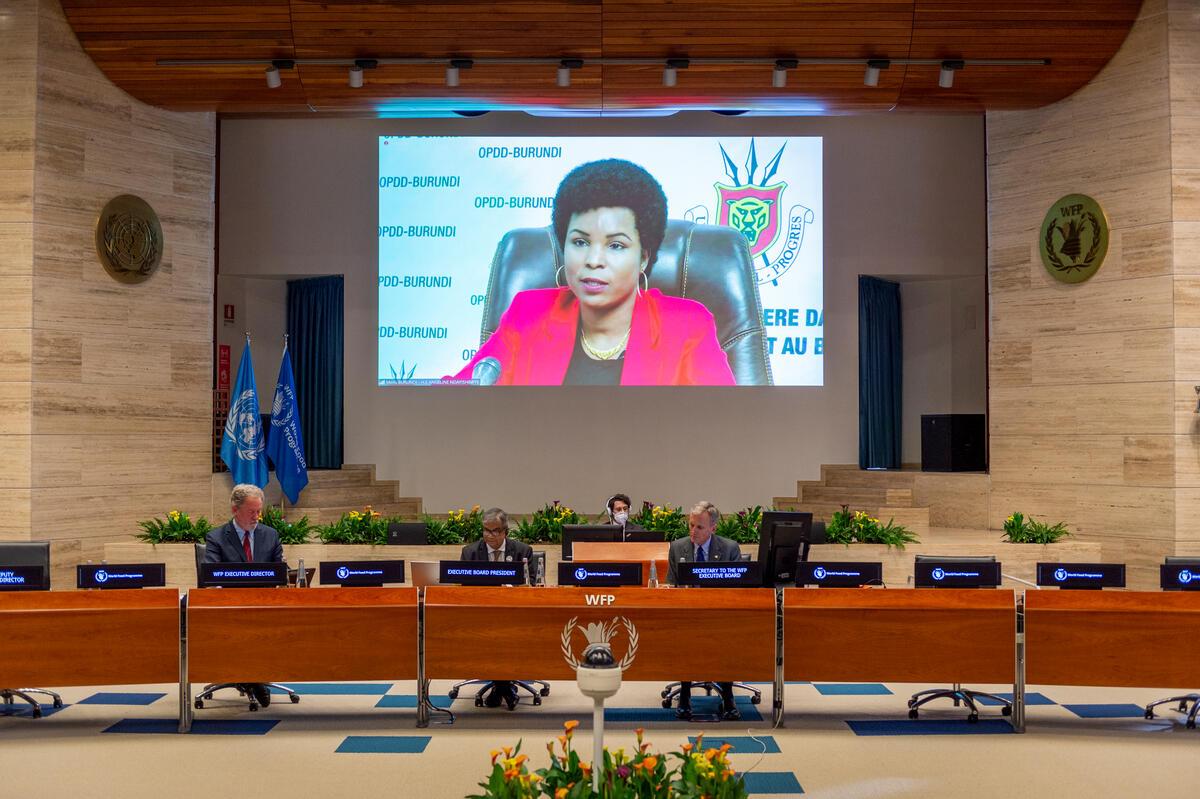
H.E. Angeline Ndayishimiye, First Lady of Burundi, during the "African Union commitment to the School Meals Coalition: turning political commitment into concrete action" high-level segment. Photo: WFP/Giulio d'Adamo
Key Documentation
Among the documents approved at this session were the Corporate results framework (2022-2025), WFP gender policy 2022, WFP evaluation policy 2022.
In particular, this Corporate Results Framework reflects the new WFP strategic plan (2022-2025) and, by streamlining and reducing the overall number of indicators, it moves the organization towards a more standard results-based management approach and greater alignment with the other United Nations actors.
Three main operational documents were adopted: Burundi interim country strategic plan (2022–2024), Cameroon country strategic plan (2022–2026), and Caribbean multi-country strategic plan (2022–2026).
El Salvador, Honduras, Zimbabwe country strategic plan evaluation reports were submitted for consideration, in addition to Summary report on the strategic evaluation of WFP's use of technology in constrained environments and Summary report on the evaluation of the WFP response to the COVID-19 pandemic along with their respective management response.
You may consult all the documentation of this session here. Click here to review all decisions and recommendations.
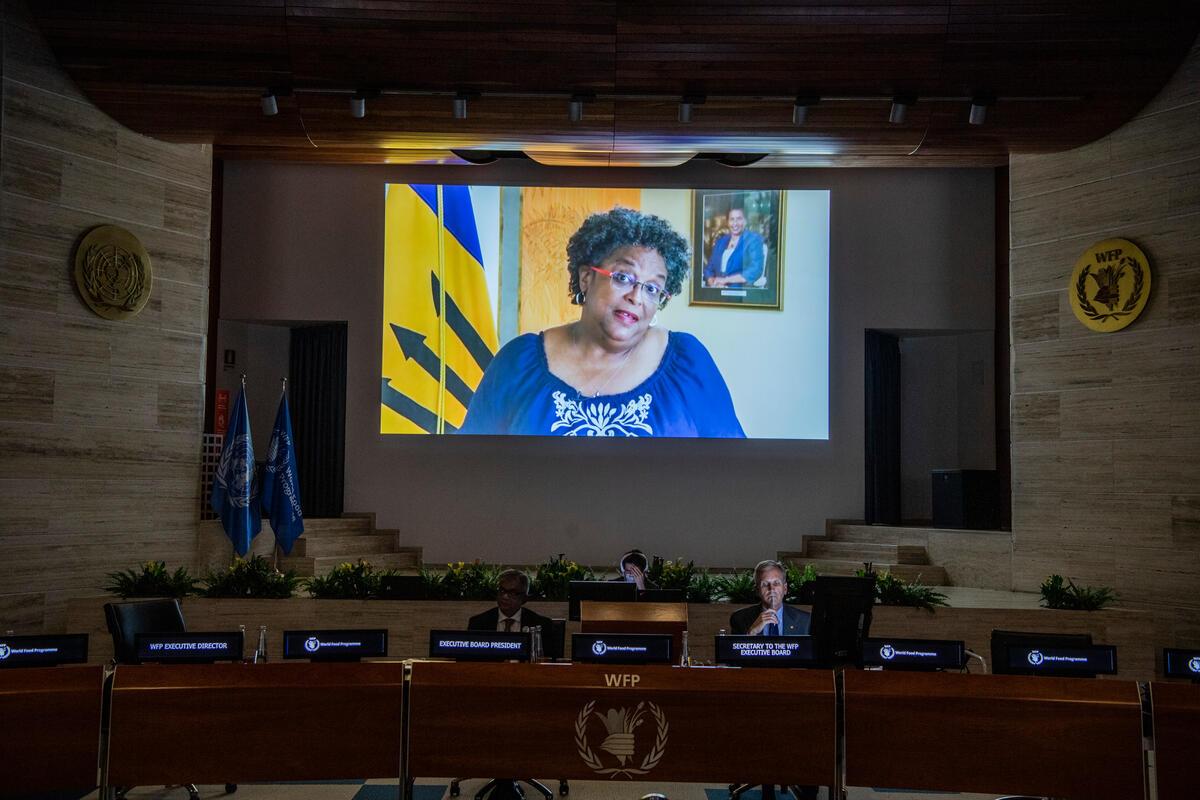
Caribbean multi-country strategic plan (2022–2026). Video message from Her Excellency, Mia Mottley, Prime Minister of Barbados. Photo: WFP/Rein Skullerud
Side events
Two side events were organized for this Executive Board.
On Tuesday, 1 March, the Governments of Germany and France co-sponsored the side event on “Political and Operational Ways to Safeguarding Humanitarian Action” showcasing their call for action (CfA) to strengthen respect for international humanitarian law and principled humanitarian action launched in 2019 and so far endorsed by 53 signatories. Moderated by Mr Ramón Lohmar, Alternate Permanent Representative of Germany, the event was also an opportunity to share the experiences of WFP’s efforts on the protection of humanitarian space in partnership with two NGOs: Geneva Call (GC) and Centre of Competence on Humanitarian Negotiation (CCHN).
Mr Hichem Khadhraoui, GC Director, illustrated how humanitarian law is disseminated to prevent starvation and Ms Joëlle Germanier, CCHN Director, explained how the humanitarian space is defended through negotiation.
On Wednesday, 2 March, a side-event on “Partnering for Gender Equality and Food Security in conflicts and post conflict settings” took place with the support from the Ministry of Foreign Affairs of Denmark. To complement discussion on the new WFP gender policy approved at this Board session, this event showcased examples, achievements, challenges and lessons learned from the 2018-2021 WFP pilot programme to advance food security and nutrition objectives with a focus on women and girls. Funded by the Government of Denmark, the initiative was implemented by WFP in partnership with UNFPA and local organizations in Afghanistan, Cameroon, Ecuador, Lebanon, Nigeria, Republic of Congo, South Sudan and Sri Lanka.
After a presentation delivered by Ms Brenda Behan, Director of WFP Gender Office, and panel discussions with country offices’ directors and partners, the event ended with final remarks from Ms Mette Thygesen, Director of Department of Humanitarian Action, Civil Society and Engagement, Ministry of Foreign Affairs, Denmark.
Among the achievements reported the inclusion of interventions aimed at enhancing women’s and girls’ empowerment in WFP and UNFPA mandates and operational capacities.
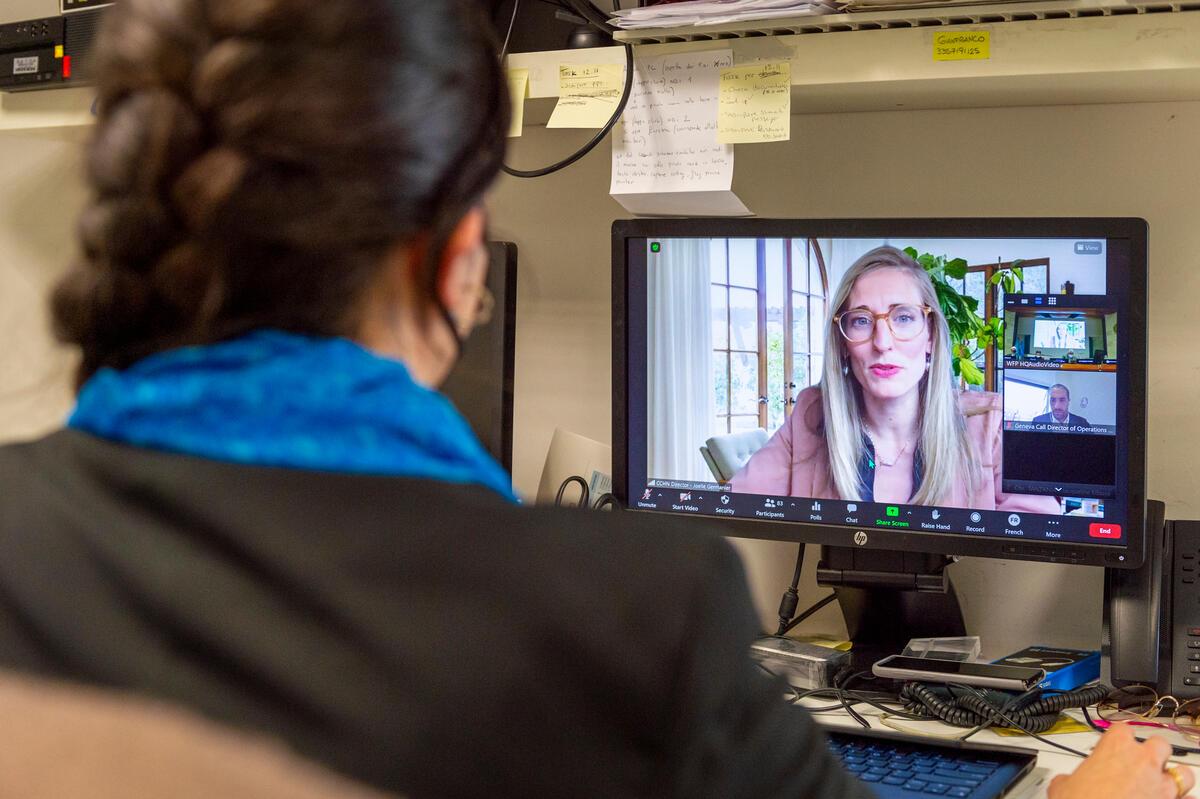
WFP Conference Staff at work during the speech by Ms Joëlle Germanier, Director, CCHN, at the "Protecting the humanitarian space means protecting WFP’s humanitarian work" – side event on political and operational ways to safeguarding humanitarian action. Photo: WFP/Giulio d'Adamo

